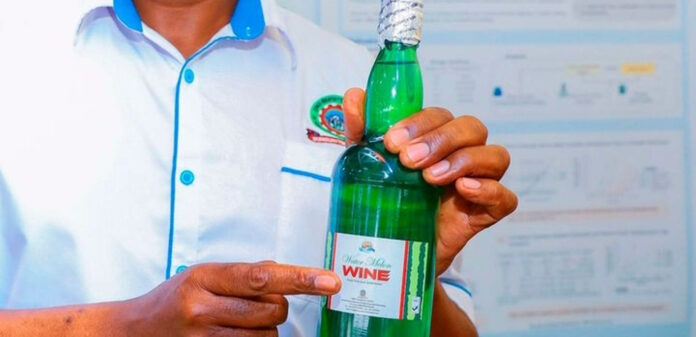Since 2006, the Jomo Kenyatta University of Agriculture and Technology (JKUAT) has been producing watermelon wine. The university started this venture in a bid to reduce waste and post harvest losses that are associated with watermelon farming due to the fruit’s short shelf life.
One year after launching the watermelon wine venture, JKUAT was awarded with an approval from the Kenya Bureau of Standards (KEBS), paving the way for the cull commercialization of the venture.
Its watermelon wine has been retailing at Sh. 1,000 per 750 ml bottle. This bottle comes with a 12 per cent alcohol by volume (ABV).
According to George Mathenge, a food science technologist at JKUAT, 200 kilograms of watermelons yield about 80 litres of juice. After processing, these litres then produce about 70 litres of wine. “The difference between the juice and the final wine is due to residues that are formed during the processing,” says Mathenge.
He notes that the watermelon venture has an immense capacity for acceleration due to the huge turnaround from sowing to harvesting. Currently, the fruit takes 80 to 100 days from sowing to harvesting.
I lost Sh. 450k in watermelon farming; now I make 100k monthly from pawpaws, passions
In the full year 2023, watermelons were grown on some 11,413 hectares of land across the country. This resulted in the production of 489,700 metric tonnes. Apart from developing watermelon wine, the university is also in the process of developing cactus wine.
“Cactus is rich in zinc, a vital mineral that boosts immunity, especially in men,” says Mathenge. He explained that cactus yields red wine while watermelons yield white wine. “The watermelon or cactus should be fully ripe for production of the wine to start.”
The fruits are crashed to extract their juice in a process that is known as ‘Must’. In the production of red wines, the fruit peels remain with the juice to add colour and tannins. With white win, juice is separated from the peels and seeds before fermentation takes place.
The fermentation procedure takes about two weeks. It involves the conversion of sugar into alcohol. During this process, temperature is used to shape the wine’s flavour. Once this procedure is completed, the wine is subjected to a procedure known as ageing. This procedure is conducted in stainless steel tanks or oak barrels.








